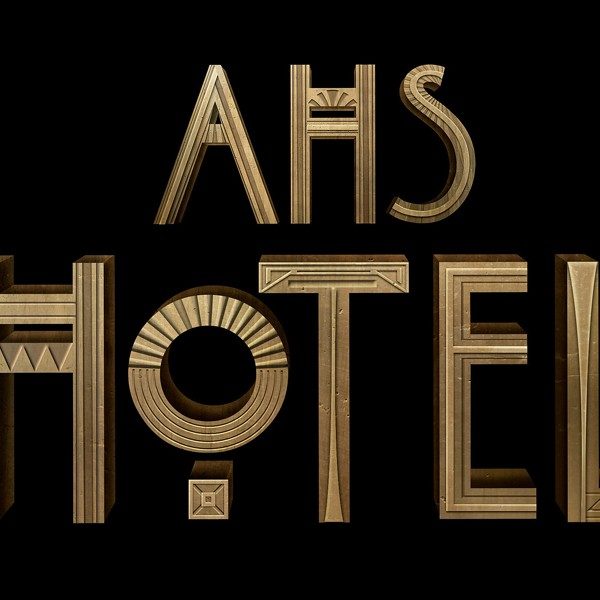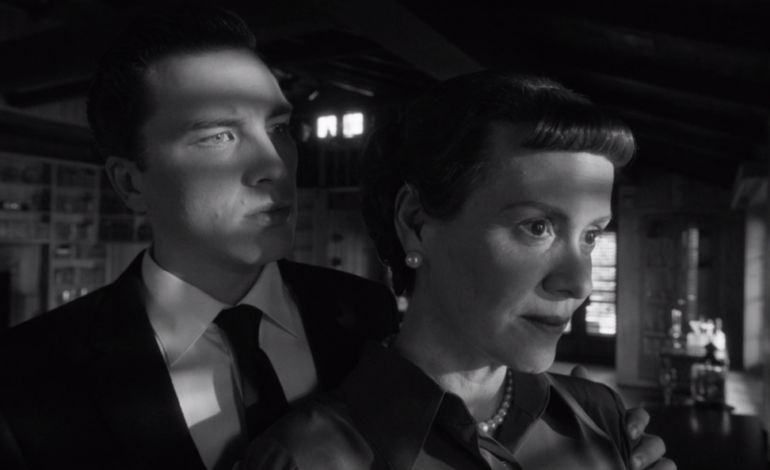

The finale of ‘Death Valley’—and the whole of the ‘Double Feature’—was better than the finale of ‘Red Tide,’ but that doesn’t really say much considering how low the bar had been sent. However, considering it was only a four-episode narrative, credit must be given to their ability to tidy up almost all the loose strings, regardless of how they actually went about doing that.
This was hinted at throughout the four episodes, what with the Luddite cult Kendall (Kaia Gerber, American Horror Stories) was part of—which wasn’t as important as it could have been, so while its arc started and finished in the first episode of ‘Death Valley,’ it still felt forgotten—and how the aliens were the ones to introduce all the modern technology to humans in the first place, but this episode truly solidified what point they were trying to make which, unfortunately, was nothing more than the “technology = bad” narrative that these creators have yet to realize is never as clever or inspired as they think it is. While there were moments where it felt as though they were going to make a certain point or go in a certain direction that would have made far more interesting commentary and show genuine understanding and thought, ultimately this was just another way for American Horror Story to make hollow commentary and try to stay modern and relevant while putting in as minimal effort as possible in everything except just creating the show.
This final episode saw basically everyone dying. While a very effective way to tie up loose ends—just make sure those ends don’t exist by the time the credits roll so there’s no need to question what happens to them after—and ending on what was most likely meant to be a fairly tragic and ominous note, the “major” deaths weren’t particularly moving and the more impactful deaths were the ones that were cast aside by the characters.
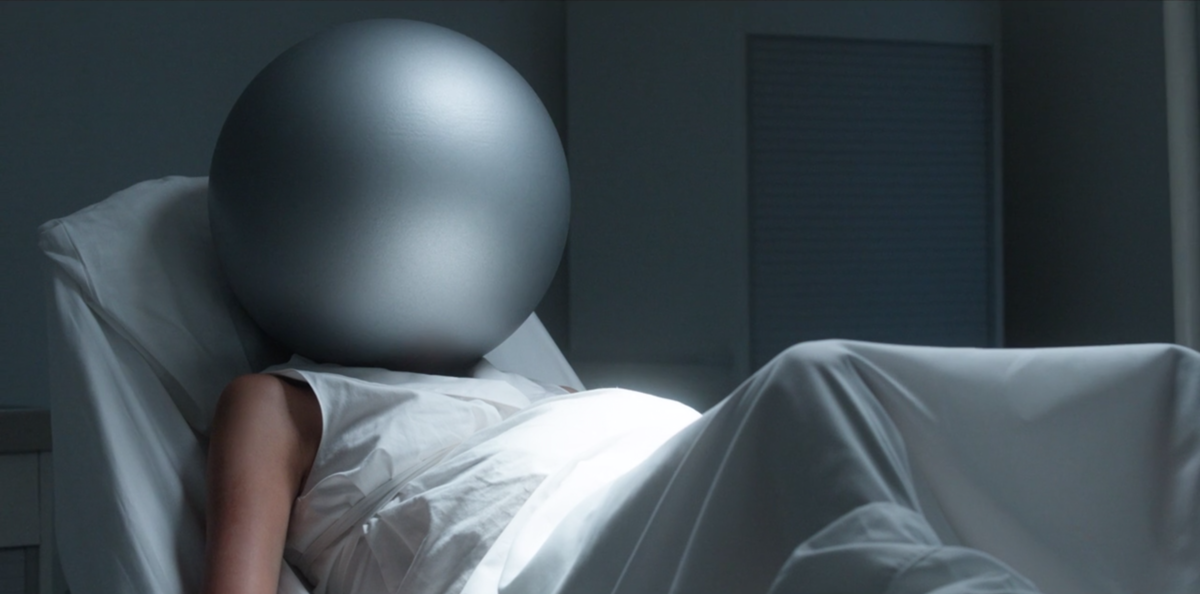

Ike Eisenhower’s (Neal McDonough, The Flash) death was compelling, seeing that he was never able to forgive himself for signing the treaty was actually rather sad since all the people around him were more than fine with the situation which meant the past two decades had see him living, and ultimately dying, alone.
Cal (Nico Greetham, The Prom) and Troy’s (Isaac Powell, Modern Love) deaths were probably the most sad because they had been so hopeful in their final scene in the previous episode, so to see them not only dead but discarded and by everyone around—including the show itself, because they were truly nothing more than a way to move the plot along—it was really tragic because they were so great and Powell’s performance as Troy was one of the highlights of ‘Death Valley.’
Another compelling performance was that of Cody Fern’s (Eden) Valiant Thor. Though his relationship with Mamie Eisenhower (Sarah Paulson, Ratched) truly came out of nowhere and really felt forced, his character himself was very compelling with his tonal inflection and specific physical mannerisms, he was so fascinating, and it’s a shame they didn’t delve deeper into what exactly he was, as was neither of the alien race he represented, nor the lizard people they threw in at the last second, who were also discarded despite their potential.
The discomfort with using real people as tools for a fictional narrative hasn’t decreased in the slightest, and it was already bad enough that they were depicting Former First Lady Mamie Eisenhower the way they were, with her self-involvement, fixation on birthday parties, her flippant disregard for humanity, affair with an alien robot person, among so much else, but to have her be the final catalyst and doomed hope of the narrative was so uncomfortable.
In terms of broad strokes, it’s clever how they managed to tie the two timelines together through a character who had been pivotal for many of the decisions in one of the timelines without necessarily being the protagonist or main antagonist, and it was especially great to see the visual transition between the two timelines in the same physical location that primarily adheres to the monochromatic visuals that dominated one of the timelines, with a brightly colored article of clothing connecting the two through the transition since the color was commented on when it couldn’t yet be seen. All of this is incredibly well done and a great transition, especially since it’s the final episode and all the transitions previous had been unconnected and jarring without much thought of connecting the two timeline narratives beyond general themes.
Unfortunately, all of this is undermined by the fact that, instead of creating their own characters, the show is using the Former First Lady of the United States, though there were far more real people they included in the narrative that made it all the more uncomfortable.
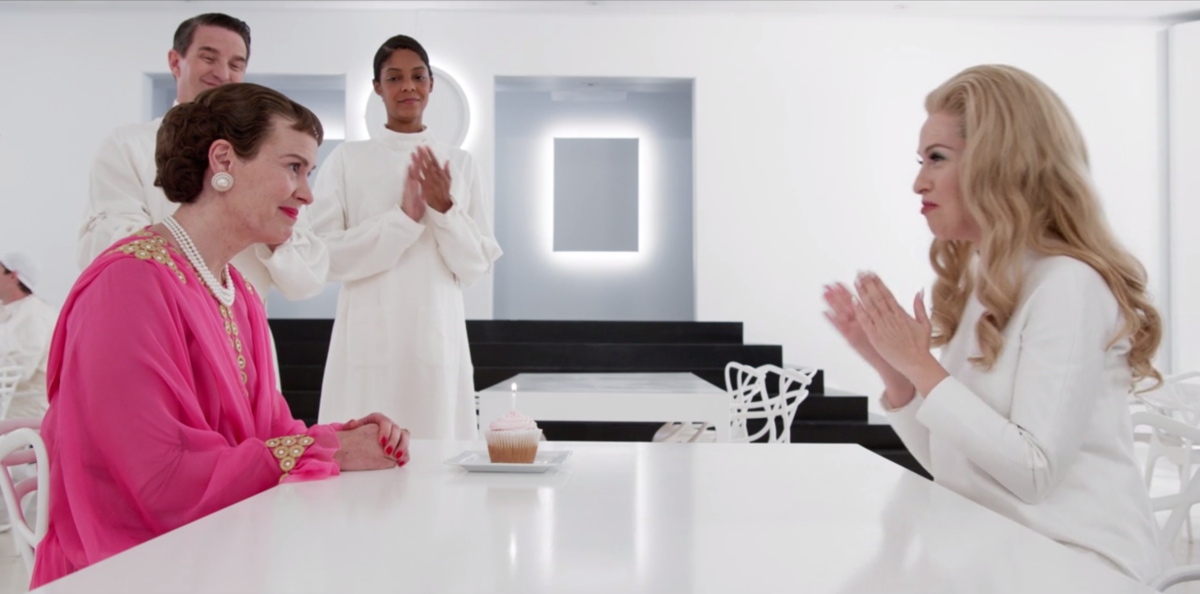

As mentioned previously, the show doesn’t know when to stop when it comes to their references. Like before, the JFK Assassination being an inside job to hide the existence of aliens was actually clever, it’s been an event with a million conspiracy theories that it’s fun to include. Same goes for Area 51 hiding aliens and the government faking the moon landing; without any of the specifics they added, these are fun reference because they’re popular conspiracy theories that can relate and, as one off’s, they’re a great and easy way to get a laugh while connecting to the narrative.
But they don’t know where to stop and wind up killing their own joke, it’s like what Harvey Dent said in The Dark Knight Rises, “You either die the hero or live long enough to see yourself become the villain,” which is exactly what happens with these references. Having the Watergate scandal being about aliens rather than political corruption was really funny, especially when Nixon (Craig Sheffer, One Tree Hill) first referenced it to the investigator that he hired, and it would have been far more interesting to just have Valiant Thor make some cryptic comment about how they made sure to take care of everything, because the humor of the scene comes from the audience knowing even just the broad strokes of the Watergate scandal, so there’s no need to go into specifics of how they managed to deflect the situation because the aliens have already been established as powerful.
Having Mamie meet with a reporter to “reveal” all the information about Watergate killed the joke, because suddenly they’re using another real person to rewrite history rather than it being rewritten solely through the aliens and specific fictional narrative being created. They were so fixated on making everything connect and be deeper—despite never actually doing anything or going anywhere with the additional unnecessary information—that they forgot their main narratives and got sidetracked with explaining their jokes.
As for the rest of the story and how it all ended up, it was interesting and pretty inventive, though nothing groundbreaking. The scene where Jamie (Rachel Hilson, Love, Victor) gave birth and was immediately killed was so strange because they planned on keeping Troy alive even though he wasn’t a perfect breeder, so there was no reason to kill Jamie except to get rid of her so that it can just be Kendall.
It was disappointing that they ultimately chose to go with Kendall as the main character for the modern timeline as Jamie had been another interesting contender, but they decided to go with the pretty white girl who hates technology even though they had described Jamie at the very beginning as the more spiritual and empathetic one which would have made for very interesting perspectives when it came to the aliens.
Also, the fact that Cal’s baby had randomly regressed to the octopus-like creature that came out of Amelia Earhart left a bad taste when Kendall was the one who gave birth to the “perfect specimen” because of course it’s the straight white girl who gave birth to the perfect specimen instead of the black girl or the not-straight boys, even though Troy and Kendalls’ babies looked exactly the same; this made it impossible to truly enjoy the final Alien reference, which is a problem in of itself.
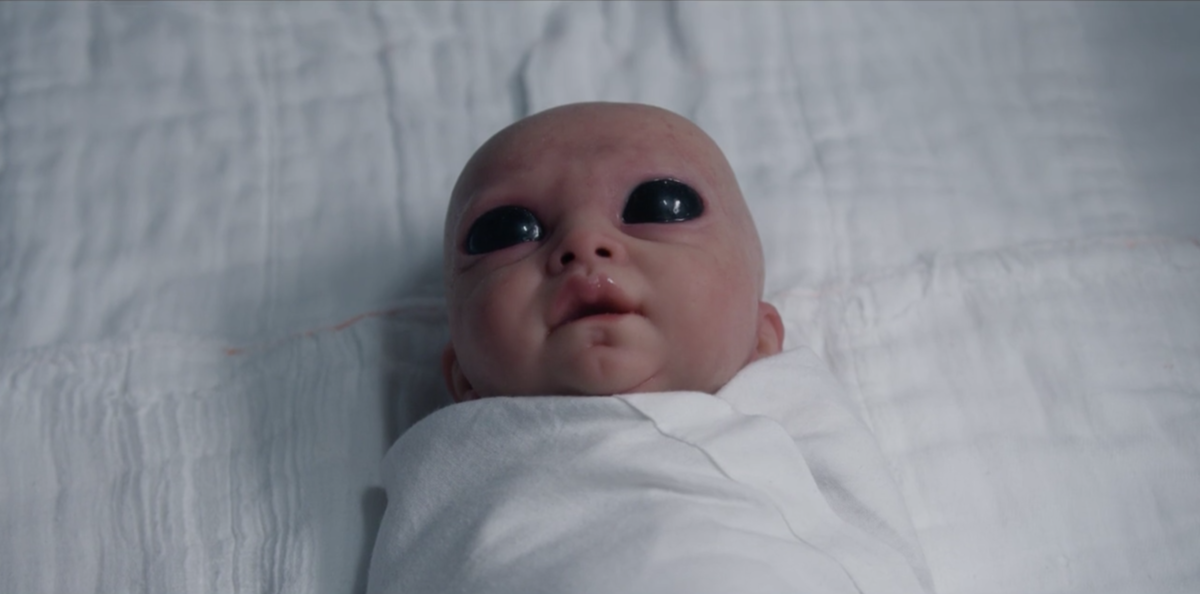

What makes this uncomfortable aspect of the narrative even worse was all the forced and hollow social commentary. It’s not that the points they were making weren’t important, such as Theta’s (Angelica Ross, Pose) reference to climate change and the treatment of refugees and immigrants, but it’s that they’re so basic and forced, as if they just wanted to toss that in for quick relevancy but hadn’t put in any thought beyond that.
Jamie’s derision of the entire alien treaty operation is the perfect example of this hollow, uninspired commentary. When looking for Cal and Troy, she derides the government’s decision to work with the aliens, not because they were complicit in kidnapping and human experimentation, amongst a plethora of other things, but because they gave up their sense of wonder and imagination for technology that people can use to send memes.
Not only is it the typical “technology = bad” commentary that says nothing of value, but nothing she said touched on the actual issues raised. The government had taken the technology because they wanted to win wars and dominate over the rest of the world, not because of memes, and she should have focused on the government giving up citizen’s lives and right to life without their consent rather than lamenting about giving up the freedom to come up with ideas on their own. There were a multitude of issues she could have pointed out, but instead she went with belittling current youth culture and lamenting about the “loss” of creativity as a result.
It seems that this is the type of commentary American Horror Story typically makes, as this has been a recurring theme for both halves of the ‘Double Feature,’ but that doesn’t make it any more disappointing; it’s just not a surprise.
The final few scenes were interesting enough to watch, though they weren’t captivating. Kendall’s final scene where she tries to virtue signal at an alien hybrid felt like a waste of time since it achieved nothing and said nothing, but the scene where they replaced her head with a metal globe with a sentient power cord to attach to her spine was so ridiculous that it made the supposedly tragic scene absolutely hilarious.
Mamie’s attempt at an uprising was also entertaining, which made up them dropping the ball on what would have been immensely interesting character development; she went from being indifferent to the lives of the populace to being concerned, but with the caveat that it was only because she felt threatened and sentimental because she found her eternal life monotonous and unfulfilling. This would have been so fascinating to delve into, as well as her relationship with Valiant Thor—they forced a sex scene, they might as well put in as much effort into developing this as they did into killing their jokes.
Watching her try and recruit Calico (Leslie Grossman, Love, Victor) in the middle of the common area with so many guards and medical personnel around was also hilarious, especially when she didn’t even bother lowering her voice or hiding the fact they have someone on the inside. This scene was topped only by the final scene when Mamie told Theta, “You never know who you can trust,” and was surprised when it turned out the hybrid wasn’t on her side.
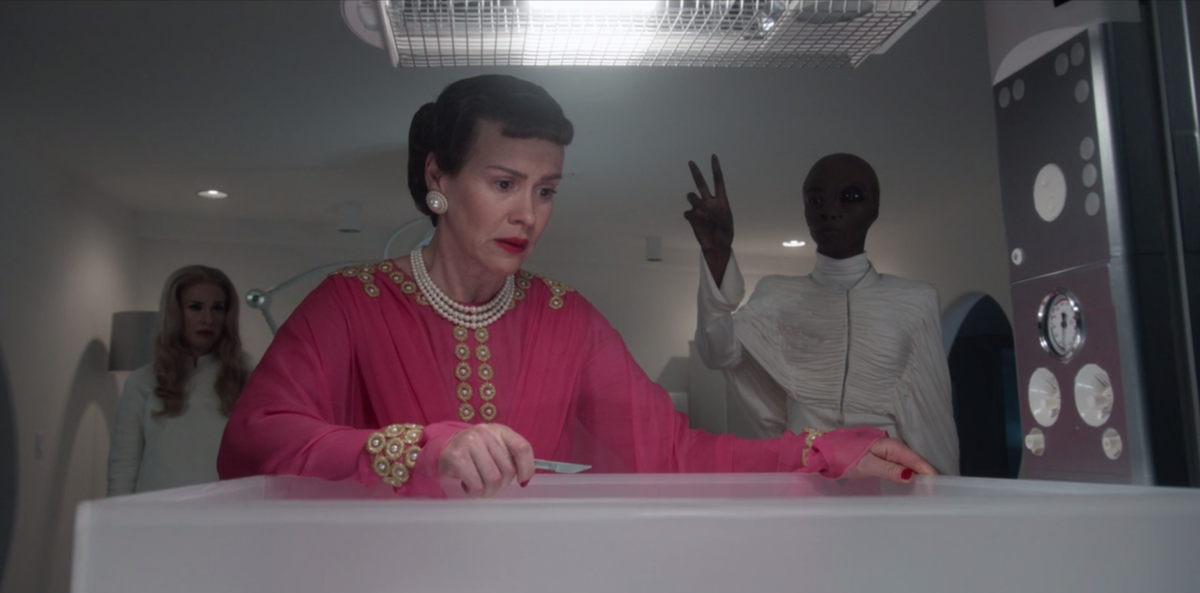

The ending wasn’t very impactful as there wasn’t enough to convince the audience to care about the future because the alien race wasn’t developed enough to garner any real emotion towards them, and all the main players are dead and irrelevant to the story as a whole.
Ultimately, this was better than the other season finale, and it did what it set out to do. It was still entertaining and a satisfying end, and with all that it had to work with from the prior three episodes, it did a very good job.
Rating: 7/10

